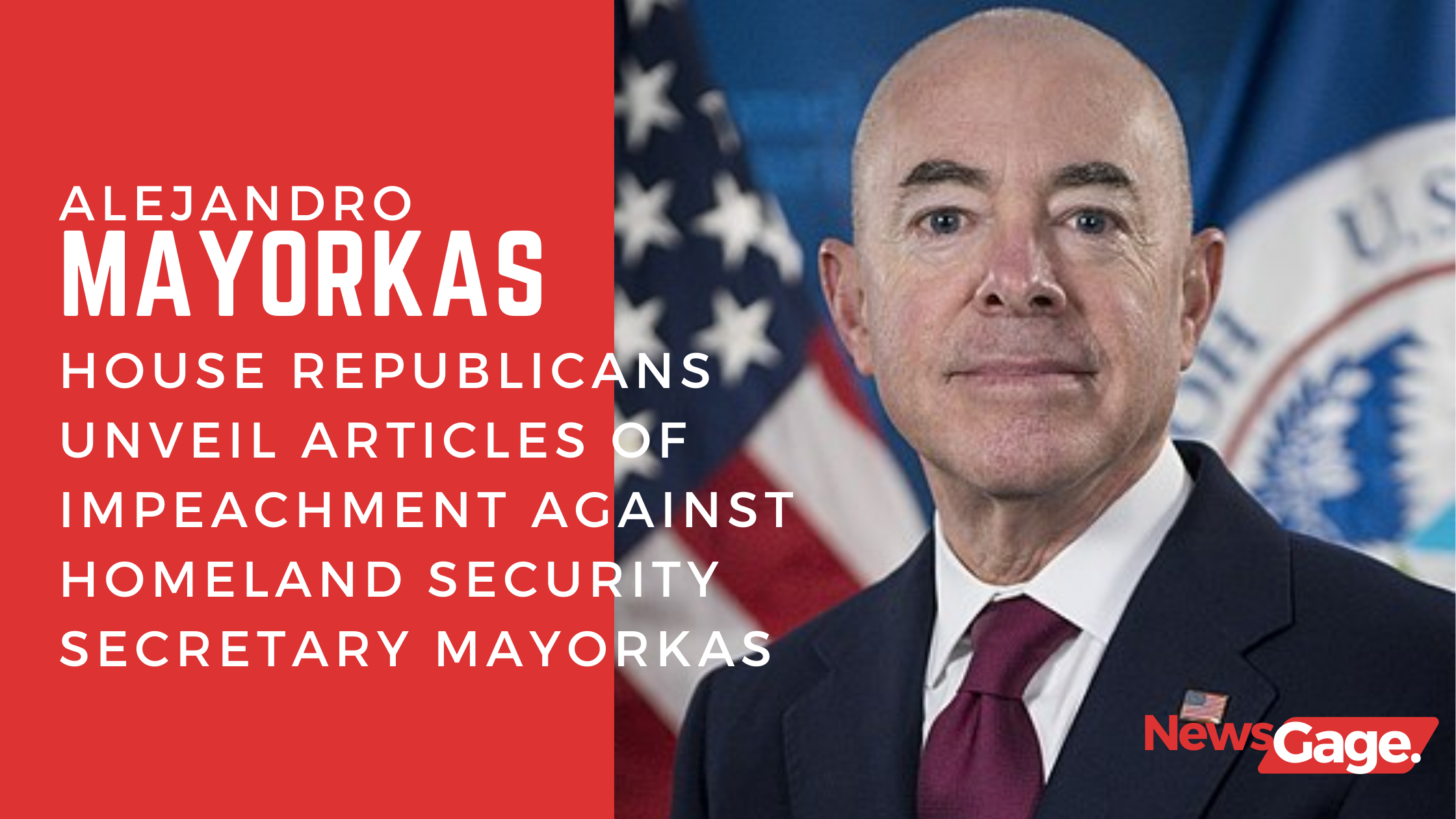
House Republicans have escalated their confrontation with the Biden administration, releasing two articles of impeachment against Department of Homeland Security (DHS) Secretary Alejandro Mayorkas. The move comes amid escalating tensions over immigration policies and allegations of misconduct within the department.
The first article accuses Mayorkas of “willful and systemic refusal to comply with the law,” alleging a pattern of behavior that flouts legal obligations and undermines the integrity of the DHS. The second article charges him with breaching the public trust by allegedly making false statements, further eroding confidence in his leadership.
The release of the articles sets the stage for a pivotal committee vote later this week, where members of the Homeland Security Committee will convene to deliberate on the charges. The timing and implications of this vote could reverberate throughout the political landscape, potentially reshaping the dynamics between the executive branch and Congress.
However, the unveiling of the impeachment articles has sparked a fierce partisan battle, with Democrats and Republicans clashing over the validity of the charges. Rep. Bennie Thompson, the top Democrat on the committee, condemned the articles as baseless and accused the House GOP of abusing its impeachment power. He emphasized the absence of concrete evidence to support allegations of “high crimes or misdemeanors,” echoing constitutional standards for impeachment proceedings.
In response, the Department of Homeland Security issued a scathing rebuke of the impeachment effort, denouncing it as a “farce” and a “distraction” from pressing national security concerns. The department’s condemnation reflects the deepening divide between the Biden administration and congressional Republicans, underscoring the broader political polarization surrounding immigration policy and border security.
The clash over Mayorkas’s leadership underscores broader ideological rifts within the federal government, as lawmakers grapple with competing visions for immigration reform and national security priorities. The impeachment proceedings against a sitting cabinet secretary signal a significant escalation in congressional oversight and legislative scrutiny, heightening tensions within the halls of power.
As the Homeland Security Committee prepares to deliberate on the articles of impeachment, the outcome remains uncertain, with the potential for partisan deadlock and protracted legal battles. The proceedings are poised to test the resilience of democratic institutions and the rule of law, as elected officials navigate the complex terrain of executive accountability and congressional authority.
Against the backdrop of mounting challenges at the southern border and escalating geopolitical tensions, the impeachment of a high-ranking cabinet official adds a new layer of complexity to an already fraught political landscape. The outcome of the committee vote will not only shape the fate of Secretary Mayorkas but also reverberate throughout the corridors of power, shaping the trajectory of immigration policy and governance in the United States.
As the nation grapples with unprecedented challenges and divisions, the impeachment proceedings against Secretary Mayorkas serve as a stark reminder of the enduring tensions that define American politics. In the crucible of congressional scrutiny, the fate of a cabinet secretary hangs in the balance, underscoring the gravity of the moment and the stakes for the future of the nation.
